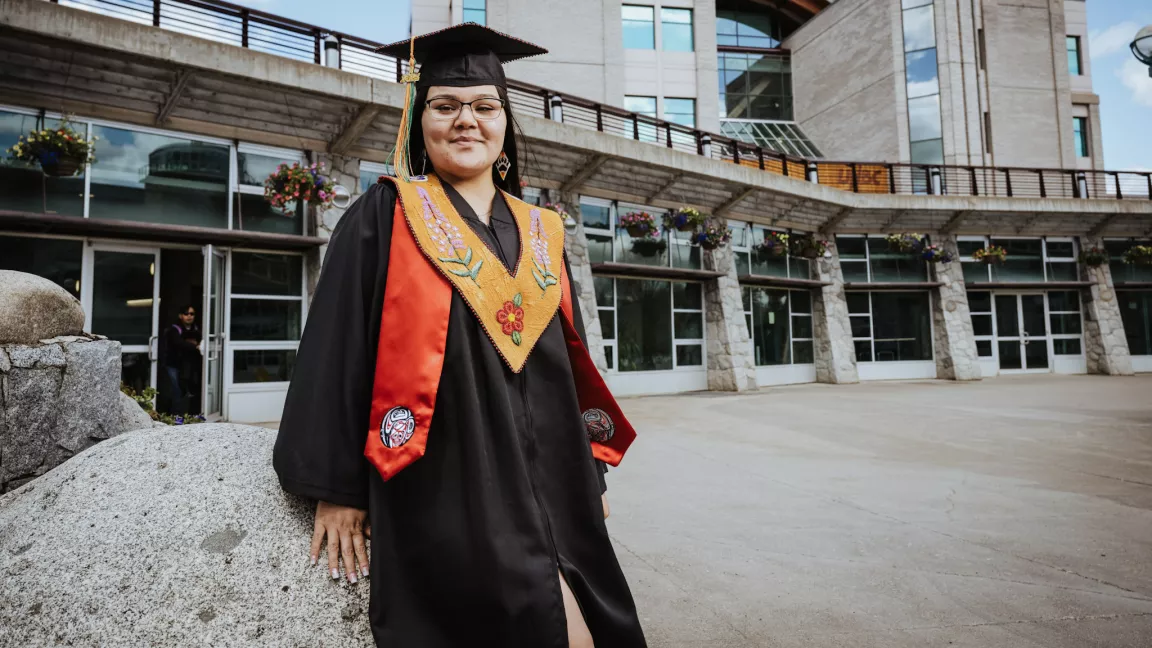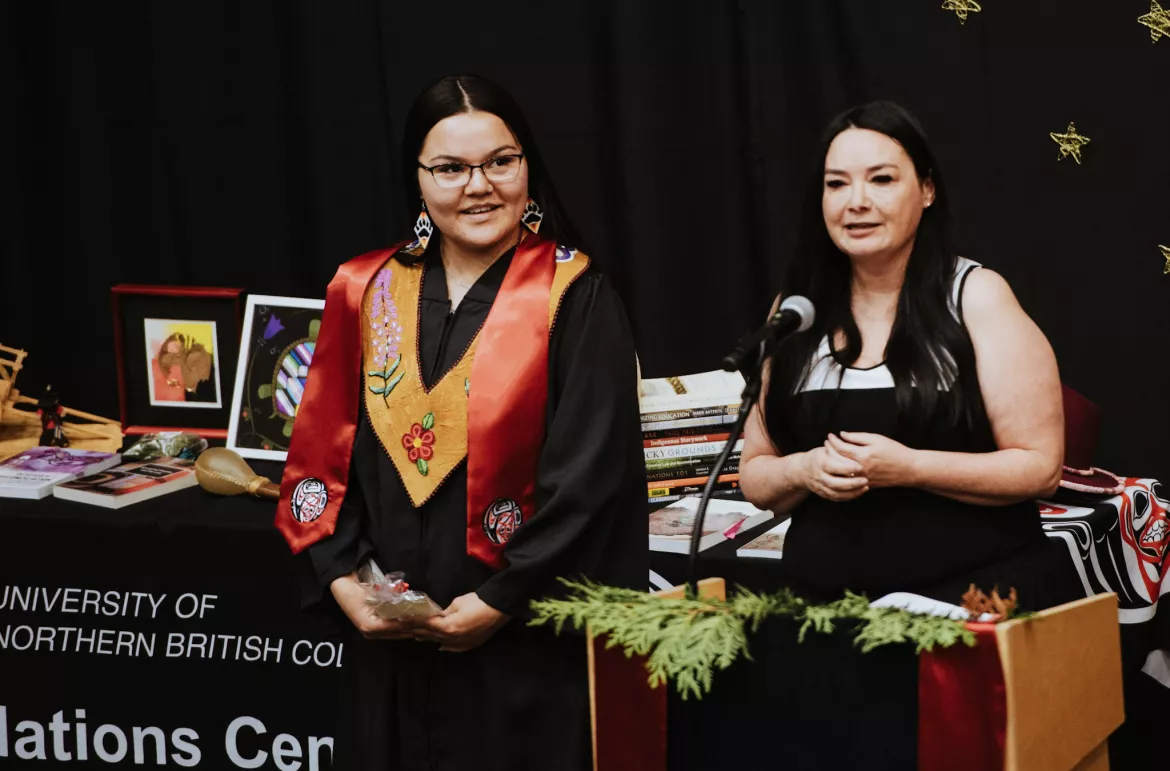Community support helps fulfil academic dreams
Montanna Rohrbach found support from her home community of Kwadacha and at UNBC as she earned a Bachelor of Social Work degree in 2024.

Prince George, B.C. - Sometimes meeting the right person at the right time can make all the difference. For recent UNBC Bachelor of Social Work graduate Montanna Rohrbach, taking a class with faculty member Melanie Lansall was a turning point in her academic journey.
Rohrbach was born and raised in Kwadacha, a small community in the Rocky Mountain Trench more than 400 km north of Prince George. Moving from a town of 350 people to post-secondary education was, at times, overwhelming. Meeting Lansall, a fellow Tsek’ene scholar from the nearby community of Tsay Keh Dene, made the transition that much easier.
“This experience changed everything for me,” Rohrbach says. “It made me feel safe, heard and understood and that I, too, can occupy spaces like university as a Tsek’ene woman.”

During the First Nations Centre graduation celebration on May 30, Ms. Lansall spoke about the connection she made with Rohrbach and the importance of representation in the academy so people from all backgrounds feel welcome.
“I know the hardships our students from outer communities’ face, and I understood how alone one could feel. I want to ensure that our students feel safe and supported through this academic journey,” she says. “It means so much for us as Indigenous Peoples to have connection and understanding. Montanna was one of the most dedicated students I have met and am honored to be a part of her journey at UNBC. Both of us are a legacy of UNBC.”
Rohrbach completed Kindergarten through Grade 12 in Kwadacha, and always dreamed of the possibility of pursuing post-secondary education. She started her studies at the University of British Columbia-Okanagan, before coming to UNBC.
Arriving at UNBC was daunting.
“The transition was tough,” she recalls. “I didn’t think I was cut out for the demands of university and being in an urban setting. There were many times in my first year I wanted to give up and go back home.”
Through it all, Rohrbach persevered.
She found resources on campus that could support her and built connections with her classmates and instructors.
“One of the hardest things about transitioning to university was having the confidence to ask for help,” she says. “Utilizing all the First Nation Centre’s resources and mentors made the difference in my success.”
She also had support from her home community. Rohrbach is grateful for the funding support from the Kwadacha Education Society and to everyone who helped her along the way, from her teachers in elementary and secondary school to classmates to her family and friends.
"My community encouraged me time and time again to keep going to school and never missed a beat in telling me how proud they are of me," Rohrbach reflects. "My family kept me together and was my backbone through it all."
Rohrbach chose Social Work after spending time working at Koh Dune Nujehde, a healing home in Kwadacha that provides a safe and secure place for children and families who need social welfare protection.
“At Koh Dune Nujehde, we keep our children safe, in the community and connected to their families and culture,” she says. “Working at the healing home was what sparked my interest in social work.”
Rohrbach is returning to UNBC in the fall to begin her studies in the Master of Social Work program and when plans to return to Kwadacha to contribute positively to her home community when her schooling is complete.
Reflecting on the First Nations Centre’s graduation ceremony and Convocation, Rohrbach says she found immense significance in the events. She has a message for other young people from remote communities considering further education.
"University is hard. It takes a huge amount of commitment and determination,” she says. “It's OK to be scared. It's okay to be lonely. Over time, you will feel safe in a strange environment, and you will feel a sense of belonging. Don’t give up on the first obstacle you encounter."